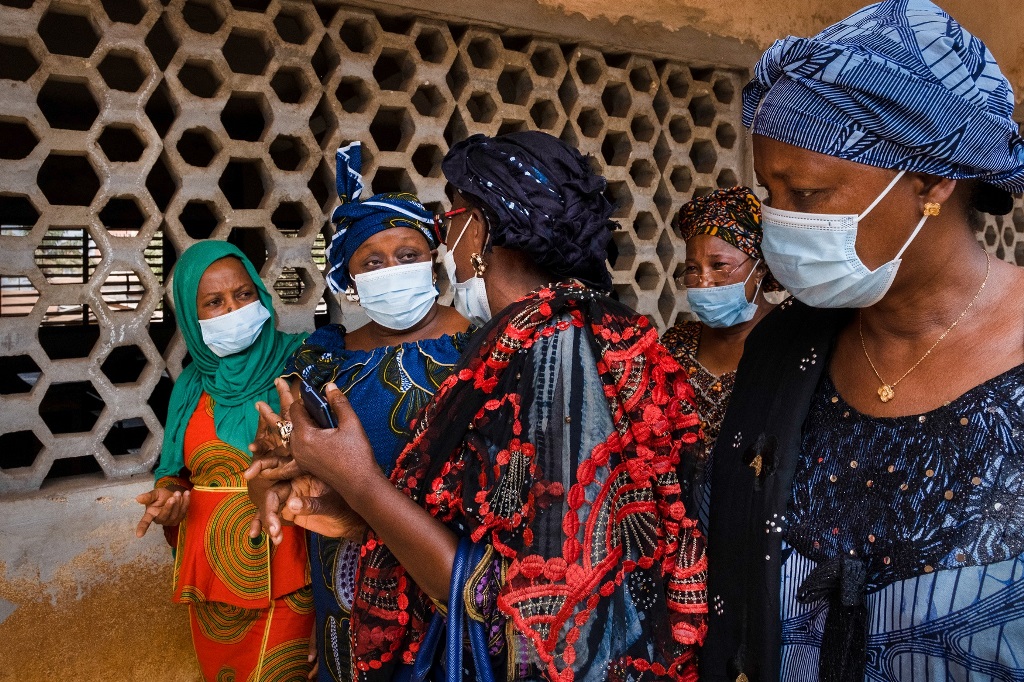
Global NCD Compact 2020–2030
Diallo, who works as a bookkeeper at an elementary school in Conakry, Guinea, speaks to a classroom of students about her experience as a cervical cancer survivor.
A global compact to save lives and improve livelihoods for people living with NCDs
Every minute, 28 people die prematurely from a noncommunicable disease (NCD), such as cancer, diabetes, heart or lung diseases, because countries have not taken the policy, legislative and regulatory measures available to them to address the world’s biggest causes of death. NCDs affect around two billion people. Despite many NCDs being highly preventable or modifiable, and technical packages of essential interventions made available, progress is inadequate.
NCDs cause three quarters of all deaths globally, yet receive only around 1–2% of global financing investment for health.
The Global NCD Compact 2020–2030 aims to accelerate progress on the prevention and control of NCDs. It seeks to ensure Member States adopt policies and programmes that improve NCD outcomes and save the lives of people living with NCDs. It is a high-profile flagship initiative of the WHO Department for Noncommunicable Diseases, bringing together Heads of State and Government to encourage WHO Member States to adopt best-practice policies on the prevention and control of NCDs. It delivers the Implementation roadmap 2023–2030 for the Global Action Plan for the Prevention and Control of Noncommunicable Diseases 2013–2030.
Here, you can learn more about the NCD Compact, as well as its actions, commitments and key documents, and annual meetings of The Global Group of Heads of State and Government for the Prevention and Control of NCDs.
Image from the First Annual Gathering of the Global Group of Heads of State and Government for the Prevention and Control of NCDs. In attendance from left to right: H.E. Pravind Kumar Jugnauth, Prime Minister, Mauritius; Dr Tedros Adhanom Ghebreyesus, WHO Director-General, World Health Organization; H.E. Nana Akufo-Addo, President of Ghana; Mr Michael R. Bloomberg, Global Ambassador for NCDs and Injuries, World Health Organization; The Hon. Mia Amor Mottley, Prime Minister, Barbados; H.E. Siaosi Sovaleni, Prime Minister, Tonga; Dr Jörg Kukies, State Secretary to the Chancellor, Germany on behalf of the G7. Absent from photo: H.E. Fiamē Naomi Mataʻafa, Prime Minister, Samoa.
Terms of reference
Addressing NCDs is an attractive investment. Cost-effective, high-impact interventions already exist, but are not being implemented and scaled up in countries. The gains are tangible and realizable in the short term: investing just US$ 0.84 per person, per year in NCDs could save seven million of lives in low- and lower-middle-income countries (LMICs) by the end of this decade. Despite being the world’s largest cause of death, NCDs continue to receive 1–2% of all official development assistance (ODA) for health. The recently established United Nations Multi-Partner Trust Fund to catalyse country action for NCDs and mental health is one of the global financing partnerships to support LMICs to mobilize domestic resources and to scale up action.
Addressing NCDs is an attractive investment. An updated global investment case developed by WHO shows that close to seven million lives can be saved by 2030 for an additional investment of 0.84 dollar in LMICs. This and other health gains, when converted into economic and social benefits, are estimated to be worth more than US$ 230 billion. Investing in NCDs will continue to pay for itself and is a clear and sensible win–win for all.

Sign up in support of the NCD Compact

NCD stories from the field
Launch of the Global NCD Compact 2020–2030
Related health topics
Related teams
Contact
